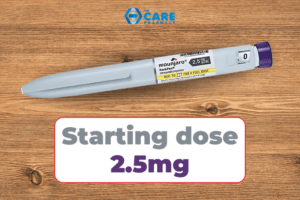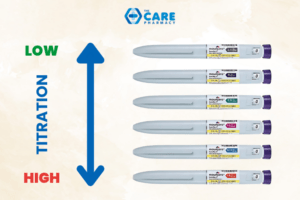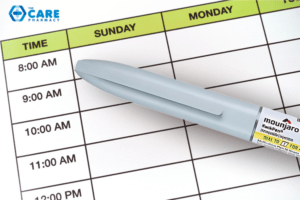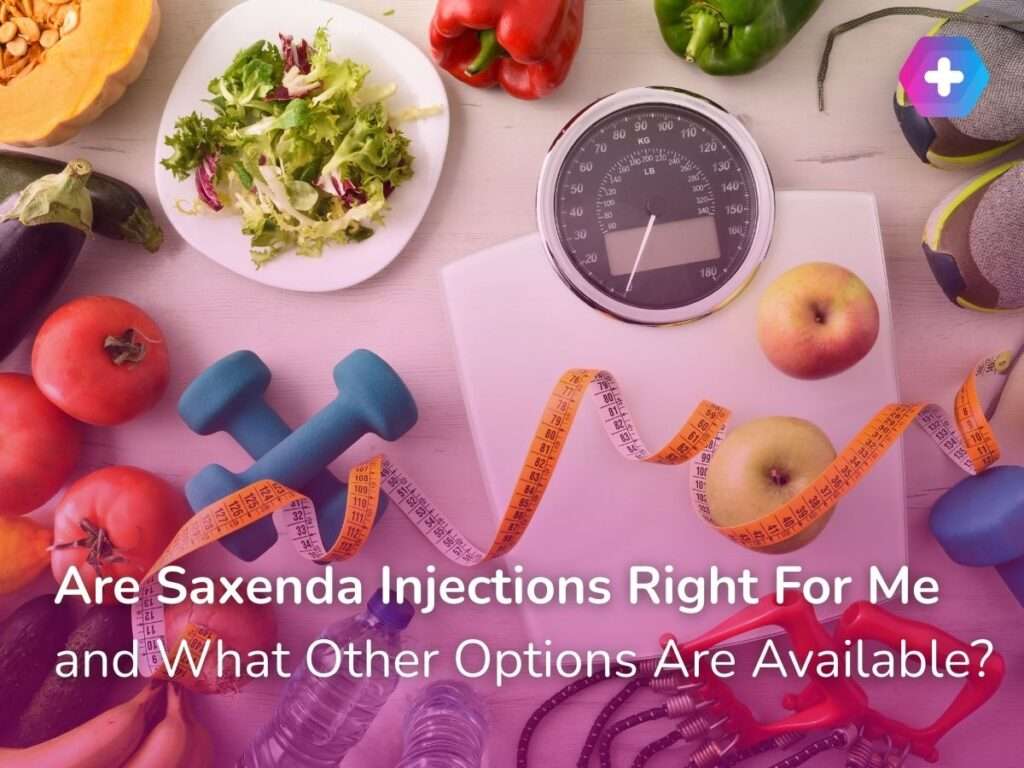Mounjaro Maintenance Dose: The Key to Lasting Weight Loss
Losing weight is tough—but keeping it off can feel even tougher. Many people see short-term results but end up back where they started. Mounjaro (Tirzepatide) is changing the game for weight loss, not just helping people shed pounds but also maintaining their weight through its carefully designed maintenance dose.
So, what exactly is the Mounjaro maintenance dose, and how does it help you achieve long-term results? In this guide, we’ll explore how the maintenance dose works, its benefits, and what to expect when you use it to secure lasting weight loss.
What is the Mounjaro Starting Dose for Weight Loss?
The starting dose for Mounjaro is 2.5mg, taken once a week for the first 4 weeks. This applies whether you’re new to the treatment, restarting after a pause, or switching from another weight loss injection. Each pen has 4 weekly doses, so one pen will cover you for the initial month.
It’s important not to increase your dose unless advised by your GP or a pharmacist. The dosing schedule is carefully structured to help your body adjust safely. If you raise the dose too soon or skip weeks, you may face a higher risk of side effects or disrupt your progress. Always stick to your healthcare provider’s recommendations for the best results.

What is Mounjaro Titration?
Mounjaro titration refers to the gradual process of increasing the dosage of Mounjaro (tirzepatide) over time to help your body adjust to the medication safely and minimise potential side effects.
When starting Mounjaro, treatment typically begins at a low dose of 2.5mg once weekly. This initial dose is not meant for weight loss but allows your body to get used to the medication. After 4 weeks, the dose is usually increased to 5mg per week, based on your clinician’s advice.
From there, further increases in dosage occur in 2.5mg increments every 4 weeks, if needed, until the licensed maintenance dose is reached—this is often between 10mg and 15mg weekly.
The titration schedule ensures a smooth transition to higher doses, reducing the likelihood of side effects like nausea or gastrointestinal discomfort. Always follow your healthcare provider’s guidance during the titration phase for a safe and effective experience with Mounjaro.

What is the Mounjaro Dosage Schedule?
Mounjaro doses are gradually increased, or titrated, to help the body adjust. Here’s a typical schedule:
- 2.5mg once weekly for the first 4 weeks.
- This phase helps your body adapt to the medication but is not intended for significant weight loss.
- Titration Phase:
- After 4 weeks, the dose is usually increased to 5mg once weekly for another 4 weeks.
- From here, the dose may increase in 2.5mg increments every 4 weeks, based on your body’s response and your clinician’s recommendation.
- Higher Doses (if needed):
- 7.5mg, 10mg, 12.5mg, and up to 15mg once weekly.
- The highest dose, 15mg, is often considered the maintenance dose for individuals who respond well and tolerate the treatment.
- Maintenance Phase:
- Once your target dose is reached, this becomes your weekly maintenance dose such as 5mg, 10mg and 15 mg are licensed Mounjaro maintenance doses.
- This phase focuses on sustaining weight loss and metabolic benefits over the long term.
Important Notes:
- Dosing Adjustments: Always follow your Pharmacist’s advice for dose changes. Do not skip or exceed the recommended intervals, as this can increase the risk of side effects.
- Consistency: Administer Mounjaro on the same day each week for optimal results.
- Individualised Plan: Your GP or healthcare provider may tailor the schedule based on your specific needs and medical history.
By following the recommended dosage schedule, you can maximise the benefits of Mounjaro while minimising risks. Always consult your healthcare provider for personalised guidance.

How to Determine the Appropriate Mounjaro Maintenance Dose?
The maintenance dose varies among individuals, usually 5mg, 10mg and 15mg. Factors influencing the appropriate dose include:
- Individual Response: How effectively the body responds to the medication.
- Side Effect Profile: The presence and severity of any side effects experienced.
- Weight Loss Goals: The amount of weight lost and the target weight to be maintained.
Regular consultations with a healthcare provider are essential to determine and adjust the maintenance dose as needed.
Importance of the Maintenance Dose in Sustaining Weight Loss
Discontinuing Mounjaro after achieving weight loss can lead to the return of previous eating habits and potential weight regain. The maintenance dose helps maintain the hormonal balance achieved during the weight loss phase, supporting continued appetite control and metabolic stability.
Supporting Long-Term Lifestyle Changes
While Mounjaro aids in weight loss, sustainable results are best achieved when combined with:
- Balanced Nutrition: Adhering to a healthy, calorie-appropriate diet.
- Regular Physical Activity: Engaging in consistent exercise routines.
- Behavioural Modifications: Implementing changes that promote a healthy lifestyle.
The maintenance dose serves as a support mechanism, reinforcing these lifestyle changes and making it easier to adhere to new habits.

Managing Side Effects During Maintenance
Common Side Effects
Some individuals may experience side effects during Mounjaro treatment, including:
- Gastrointestinal Issues: Nausea, vomiting, diarrhoea, or constipation.
- Decreased Appetite: While beneficial for weight loss, it may lead to inadequate nutrient intake if not monitored.
Mitigating Side Effects
To manage and reduce side effects:
- Gradual Dose Adjustment: Ensure any changes in dosage are gradual and under medical supervision.
- Dietary Modifications: Consume small, frequent meals and avoid high-fat foods to reduce gastrointestinal discomfort.
- Hydration: Maintain adequate fluid intake to prevent dehydration, especially if experiencing diarrhoea or vomiting. Use O.R.S electrolytes regularly to keep yourself hydrated.
Regular communication with a healthcare provider is crucial to address any side effects and make necessary adjustments to the treatment plan.

Monitoring Progress and When to Consult Your Healthcare Provider
Continuous assessment of your weight, dietary habits, physical activity, and overall health is vital. Keeping a journal or using digital tools can aid in tracking progress and identifying any concerns promptly.
When to Seek Medical Advice
Consult your healthcare provider if you experience:
- Persistent or Severe Side Effects: Such as prolonged nausea, vomiting, or gastrointestinal issues.
- Unintended Weight Changes: Significant weight gain or loss beyond expected outcomes.
- Other Health Concerns: Any new or worsening symptoms that may be related to the medication.
Regular follow-ups with your healthcare provider ensure that the maintenance dose remains effective and safe, allowing for adjustments as necessary to support your long-term weight management goals.

Our Healthcare Experts’ Answers to Common Patient Questions About Mounjaro Maintenance
- What BMI is required to switch to your service for maintenance?
If you’re switching to us and can provide proof of your previous Mounjaro usage, we don’t base our decision solely on your BMI. Even if your BMI is now in a healthy range, you can continue treatment with us. Acceptable proof includes a picture of your previous box with a dispensing label or a confirmation email from your previous supplier. The supplier must be legitimate, such as a pharmacy, not a beauty salon.
- Can someone with a healthy BMI switch to your service for maintenance?
Yes, we allow patients with a healthy BMI to switch to our service, as long as they can provide the required proof of their previous Mounjaro treatment.
- How long do you support maintenance on Mounjaro?
There is no strict time limit for maintenance. However, we monitor patients carefully and may restrict treatment if their BMI becomes too low or if there are signs the medication is being misused.
- Do you offer guidance on titrating down the dosage once a healthy BMI is achieved?
Yes, we provide tailored guidance for patients who wish to taper off Mounjaro after achieving their weight loss goal. This is customised to each individual to ensure the transition is smooth and safe.
- If someone tapers off Mounjaro but later decides to restart, is that allowed?
Yes, restarting is allowed. Patients who wish to restart Mounjaro after a break typically begin again with the lowest dose of 2.5mg weekly, following the titration schedule under medical supervision.
- What BMI must I have to switch to you as a new customer?
- First-time users: A BMI of 30 or higher, or between 27 and 30 with weight-related comorbidities, as per the product license.
- Current users: Any BMI above 19.5, as long as proof of previous treatment is provided.
- What comorbidities allow you to switch with a healthy BMI?
Weight-related comorbidities, such as type 2 diabetes or high blood pressure, are typically considered when approving patients with a BMI under 30.
Additional Note:
For patients with a BMI close to 19.5 or who appear underweight, we may conduct additional checks, such as video consultations, to ensure their safety and prevent misuse of medicine.

Safety Considerations for Mounjaro Maintenance
Official Licensed Doses
The approved maintenance doses are 5mg, 10mg, and 15mg weekly. Patients must stay within these ranges unless otherwise directed by their doctor.
Avoiding Misuse
We take extra care with patients who are at risk of becoming underweight or misusing the medication. Regular consultations ensure that treatment is appropriate and safe.

Final Takeaways
Mounjaro offers more than just weight loss—it provides a sustainable path to long-term health. Whether you’re starting treatment, switching providers, or considering maintenance, we are here to support you with transparency, flexibility, and personalised care.
If you’re ready to start or continue your weight loss journey with Mounjaro, fill out your online consultation with us today. We’re committed to helping you achieve your goals safely and effectively.
Medically reviewed by
Mohammed Lakhi
Superintendent Pharmacist



















